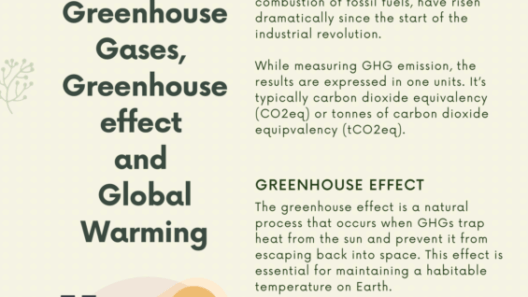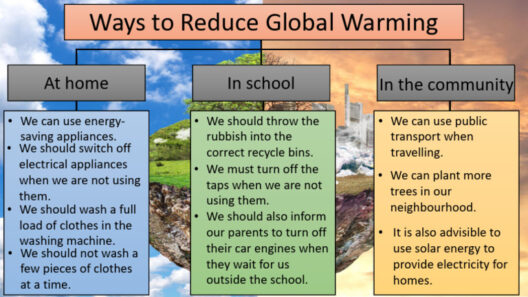The intricate nexus between fuel consumption and climate change is a subject of paramount importance. One fuel often overlooked in the broader discourse surrounding greenhouse gases is propane. While propane is lauded for its efficiency and relatively lower emissions compared to other fossil fuels, its role in global warming warrants a more nuanced examination. Understanding propane’s contributions to climate change involves a comprehensive analysis that includes its combustion process, the lifecycle emissions associated with its extraction and distribution, and its potential alternatives.
Propane, a byproduct of both natural gas processing and crude oil refining, is primarily utilized for heating, cooking, and in some cases, as an automotive fuel. As a hydrocarbon, its combustion releases carbon dioxide (CO2), a greenhouse gas that significantly contributes to global warming. While it produces fewer CO2 emissions per unit of energy when burned—compared to gasoline or coal—this does not fully encapsulate the environmental ramifications of propane use. The nuanced relationship between propane and climate change can be understood through various dimensions that encompass extraction methods, transportation, and end-use applications.
One might not realize that the extraction of propane, largely stemming from shale gas production, entails a plethora of environmental concerns. Hydraulic fracturing, commonly known as fracking, is utilized to retrieve natural gas, with propane being separated during the process. This method has garnered substantial criticism due to its associated risks such as groundwater contamination, seismic activity, and the emission of methane—another potent greenhouse gas. Methane, while not the focus of this discussion, in the context of propane extraction, represents an invisible yet formidable adversary in our fight against climate change.
The transportation and storage of propane further exacerbate its environmental impact. As the gas is transported through pipelines or tankers, the possibility of leaks becomes a pressing concern. Such leaks not only signify the loss of valuable fuel but also result in methane emissions. Given methane’s global warming potential, estimated to be over 25 times that of CO2 over a 100-year period, the ramifications of these leaks can be profound, often overshadowing the ostensibly cleaner profile of propane as a fuel option.
Once propane arrives at its final destination, its applications can range from residential heating to use in industrial operations. The importance of combustion efficiency cannot be overstated, yet it is critical to acknowledge that every use of propane contributes to its carbon footprint. The end-user may view propane as a practical solution to energy needs, especially when considering its portability and ease of use. However, the cumulative impacts of consistent propane usage can contribute to the exacerbation of climate issues. Through constant engagement, individuals unwittingly perpetuate a cycle of reliance on fossil fuels, subtly hindering emissions reduction efforts.
Moreover, the fascination with propane lies in its perception as a ‘cleaner’ option among fossil fuels. This leads to a misplaced sense of security, fostering a belief that propane can serve as a long-term solution for energy needs. However, the relentless accumulation of greenhouse gas emissions, irrespective of their source, serves as an inescapable reminder of our collective obligations to the environment. Renewable energy alternatives such as solar, wind, and hydroelectric power offer avenues for reducing our carbon footprint, while simultaneously addressing the ongoing climate crisis.
To further understand propane’s role in global warming, it is essential to consider its regulatory backdrop. While certain policies have been enacted to promote cleaner energy sources, the existence of subsidies for fossil fuel industries often complicates this landscape. The push for sustainable energy innovations frequently encounters obstacles in the form of entrenched interests that favor traditional fuel sources. Thus, regulatory frameworks and incentives must evolve to minimize the reliance on propane and similar fuels if mitigation of climate change is to be achieved effectively.
Public awareness surrounding the environmental impact of propane should also be heightened. Informing consumers about the implications of their energy choices is paramount. Education encompassing energy conservation and efficient fuel use can drastically alter consumption patterns over time. Propane’s role in the energy matrix should promote a holistic understanding that incorporates not only its immediate benefits but its long-term environmental costs.
Additionally, the exploration of alternatives to propane can yield fruitful discussions surrounding energy independence and sustainability. For instance, geothermal, biogas, and battery-powered solutions present viable pathways for reducing reliance on propane. Advancements in technology and materials science may also facilitate the integration of alternative energy solutions into existing infrastructure, promoting a smoother transition from fossil fuels to renewable energies. The undeniable urgency of climate action reinforces the necessity of exploring diverse energy sources rather than remaining tethered to conventional fuels such as propane.
In conclusion, while propane has been recognized for its lesser emissions relative to other fossil fuels, it undeniably contributes to the broader issue of global warming. Its extraction, transportation, and end-use applications encapsulate an intricate web of environmental challenges that cannot be overlooked. A critical perspective on propane requires understanding the full scope of its impact on climate change, along with a steadfast commitment to pursuing alternative energy sources. It is imperative for individuals, industries, and policymakers to confront these challenges head-on, fostering a paradigm shift towards more sustainable energy practices. Only by embracing this multifaceted approach can we mitigate the dire consequences of climate change and pave the way for a healthier planet.








